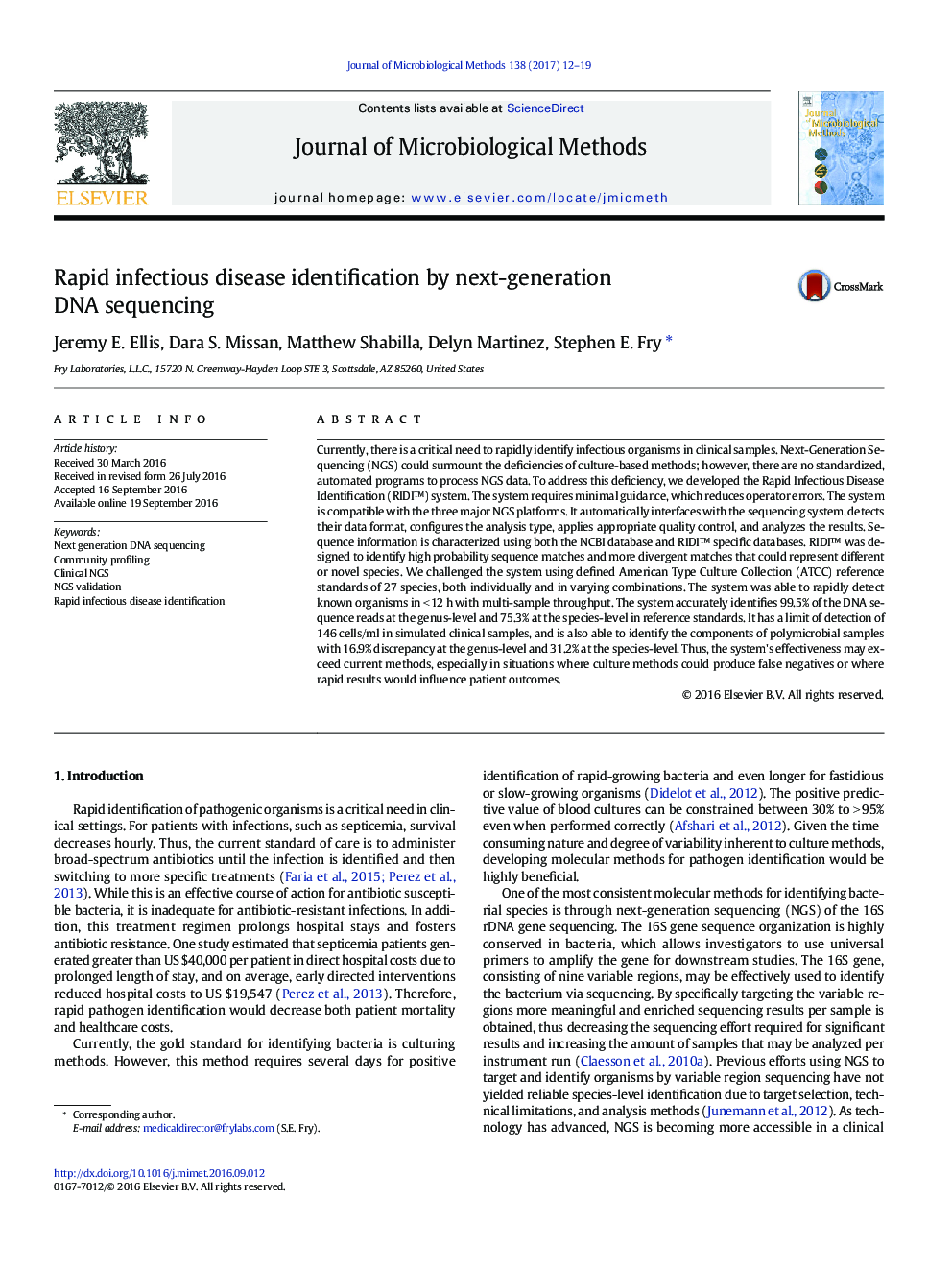| کد مقاله | کد نشریه | سال انتشار | مقاله انگلیسی | نسخه تمام متن |
|---|---|---|---|---|
| 5522235 | 1545905 | 2017 | 8 صفحه PDF | دانلود رایگان |

Currently, there is a critical need to rapidly identify infectious organisms in clinical samples. Next-Generation Sequencing (NGS) could surmount the deficiencies of culture-based methods; however, there are no standardized, automated programs to process NGS data. To address this deficiency, we developed the Rapid Infectious Disease Identification (RIDIâ¢) system. The system requires minimal guidance, which reduces operator errors. The system is compatible with the three major NGS platforms. It automatically interfaces with the sequencing system, detects their data format, configures the analysis type, applies appropriate quality control, and analyzes the results. Sequence information is characterized using both the NCBI database and RIDI⢠specific databases. RIDI⢠was designed to identify high probability sequence matches and more divergent matches that could represent different or novel species. We challenged the system using defined American Type Culture Collection (ATCC) reference standards of 27 species, both individually and in varying combinations. The system was able to rapidly detect known organisms in < 12 h with multi-sample throughput. The system accurately identifies 99.5% of the DNA sequence reads at the genus-level and 75.3% at the species-level in reference standards. It has a limit of detection of 146 cells/ml in simulated clinical samples, and is also able to identify the components of polymicrobial samples with 16.9% discrepancy at the genus-level and 31.2% at the species-level. Thus, the system's effectiveness may exceed current methods, especially in situations where culture methods could produce false negatives or where rapid results would influence patient outcomes.
Journal: Journal of Microbiological Methods - Volume 138, July 2017, Pages 12-19